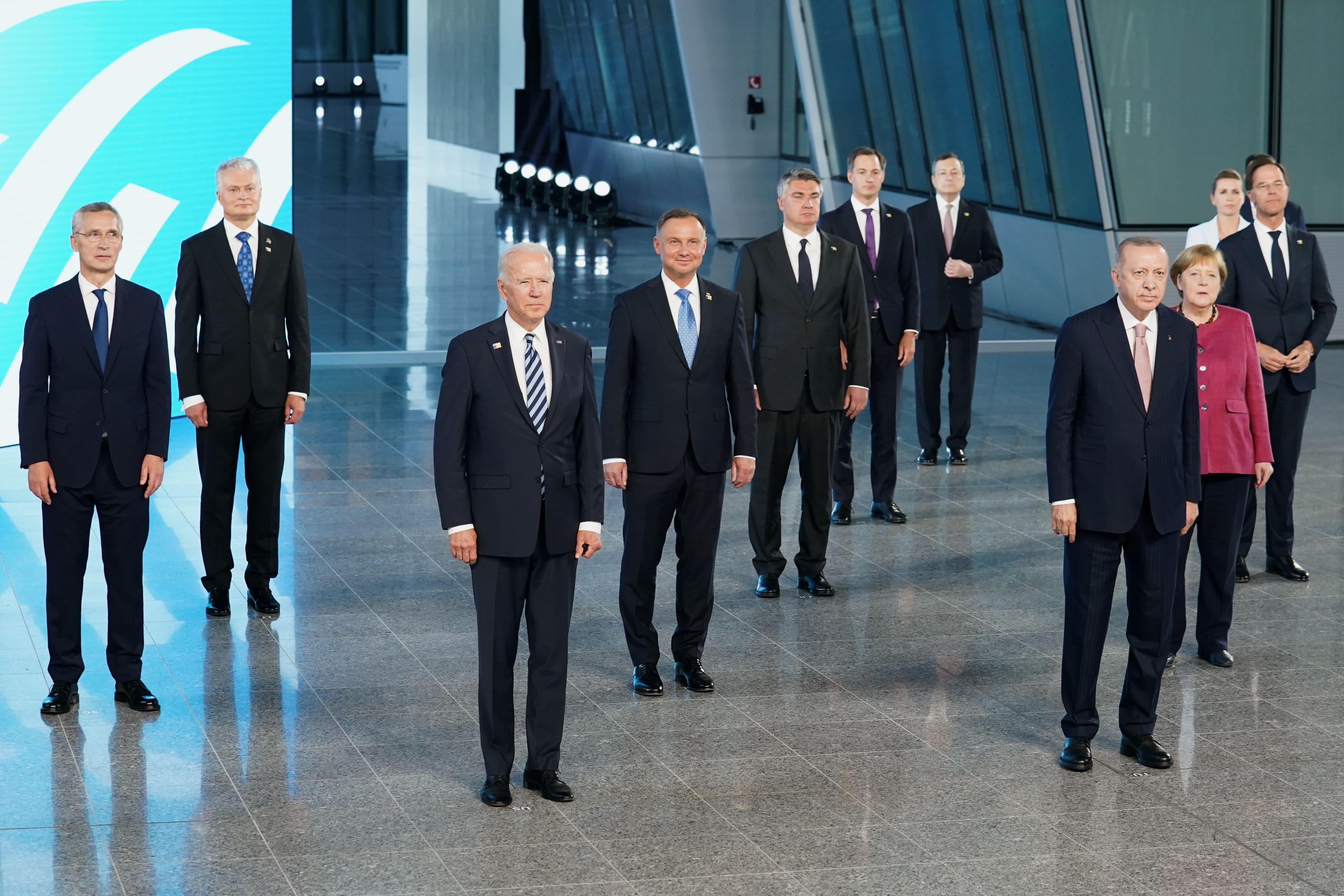
U.S. President Joe Biden and other NATO heads of the states and governments pose for a family photo during the NATO summit at the Alliance’s headquarters, in Brussels, Belgium June 14, 2021.
Kevin Lamarque | Reuters
WASHINGTON — The United States and Europe will announce a new joint technology and trade initiative on Tuesday, part of a wide-reaching effort this week by President Joe Biden to rally European allies and challenge China’s rising influence.
The U.S.-EU Trade and Technology Council will have three overarching goals: To establish new global trade standards for emerging technology; to promote democratic values online; and to find ways for the United States and the EU to collaborate on cutting edge research and development.
The end result will be that “democracies and not anyone else, not China or other autocracies, are writing the rules for trade and technology for the 21st century,” national security advisor Jake Sullivan said at a press briefing last week.
On the U.S. side, the trade council will be co-chaired by Secretary of State Antony Blinken, Secretary of Commerce Gina Raimondo and Ambassador Katherine Tai, the U.S. trade representative, said a Biden administration official who briefed reporters and requested anonymity to discuss ongoing negotiations.
Other specific goals of the council include:
- To coordinate standards on new technology like artificial intelligence, quantum computing and biotechnology.
- To make supply chains more resilient and less dependent on China.
- To pursue reforms at the World Trade Organization.
- To coordinate regulation of tech platforms.
Over the past decade, China has made huge public investments in its technology sector. The result is a digital economy and an internet that is controlled by the state and reflects its political values: Individual censorship is widespread, foreign websites are blocked if they refuse to censor sensitive topics, and private sector software can be seized to serve the interests of the state.
China is equally aggressive in protecting its domestic markets, notably by requiring foreign companies that want to operate in China to partner with local Chinese companies and turn over intellectual property.
“Dealing with China’s non-market practices, its economic abuses and its efforts to shape the rules of the road on technology for the 21st century will be an important part of the work of this Council,” said the White House official.
The new Trade and Technology Council is the latest effort by the Biden administration to leverage the combined economic might of the U.S. and Europe in order to better compete with China.
On Saturday, Biden and G-7 members announced the formation of a global infrastructure initiative called “Build Back Better for the World.” The multi-billion-dollar plan will offer a “higher quality” alternative to China’s Belt and Road infrastructure project.
One pressing issue between the EU and the United States that will not be resolved during Tuesday’s meetings is the fate of the punishing tariffs that former President Donald Trump imposed on steel and aluminum in 2018.
Trump cited “national security” as the justification for the tariffs, but European officials believe that protectionism, not national security, was the impetus for the tariffs.
Biden has signaled his willingness to lift the steel and aluminum tariffs and in May trade negotiators from both sides began talks that could resolve the issue by year’s end.
“Those negotiations are ongoing. They’ve been very constructive, but they will take some time,” said the Biden administration official. “So I don’t anticipate that you’ll see an outcome this week” on the tariffs.
Following the EU meetings on Tuesday Biden will travel to Geneva, where he is scheduled to hold a highly anticipated summit on Wednesday with Russian President Vladimir Putin.




